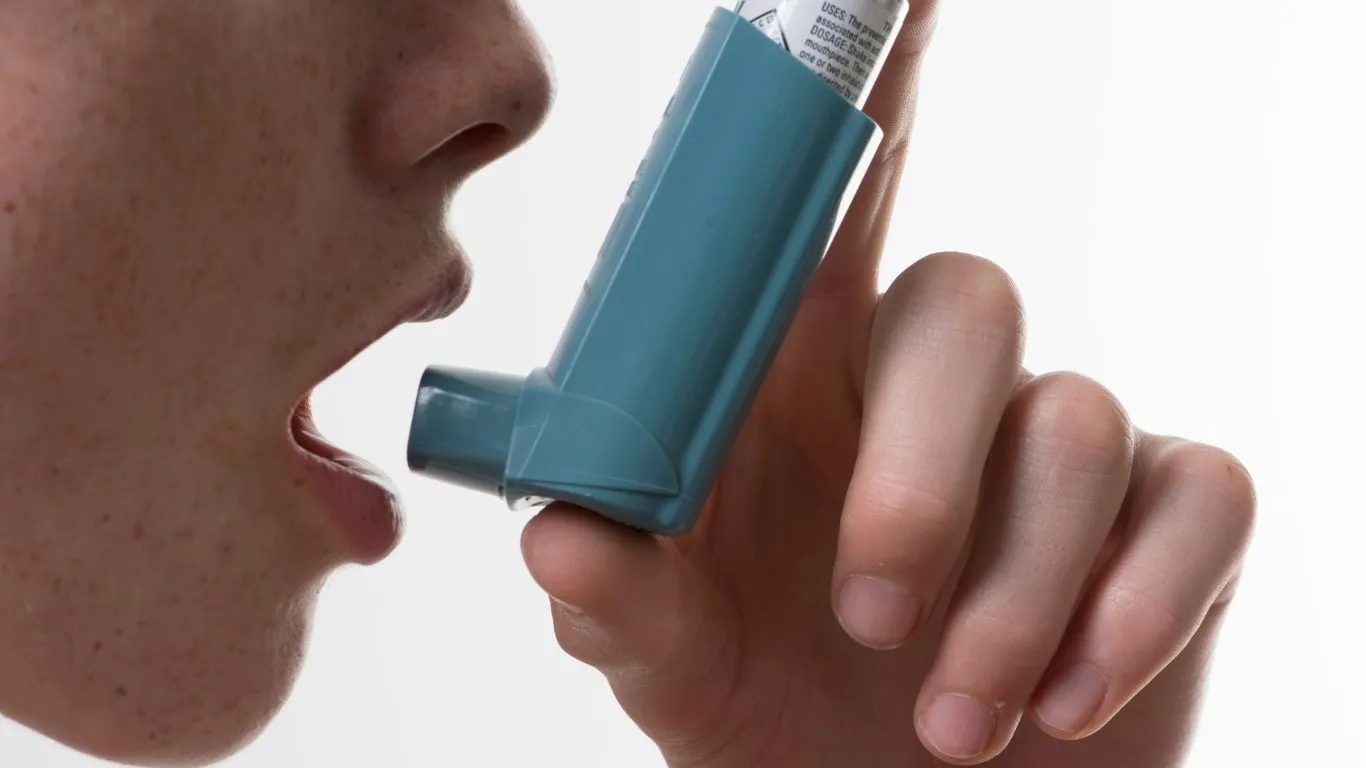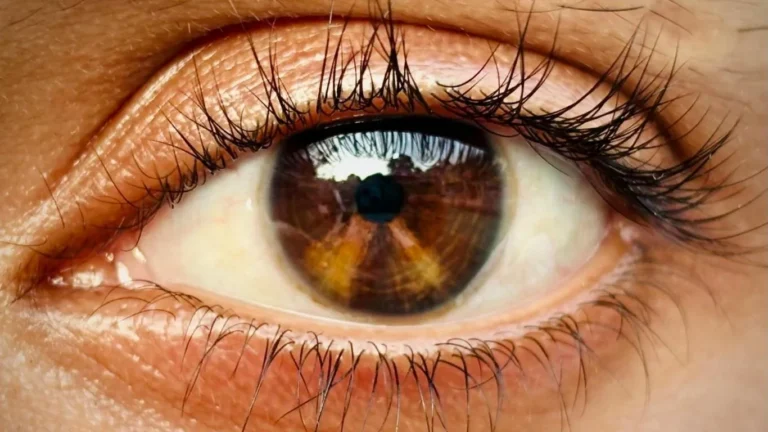Discover the Best Herbal Teas to Ease Asthma Symptoms Naturally and Effectively
If you’ve ever seen someone gasping for breath during an asthma flare-up, you know how scary and stressful it can be—for the person struggling and for anyone around. I’ve been a Pulmonary Nurse for years, and trust me, I’ve witnessed my fair share of wheezes, tight chests, and panicked eyes. One question I get asked all the time—especially by patients looking for more natural ways to manage their breathing—is: what are the best herbal teas to ease asthma symptoms? It’s a good question, and honestly, there are some solid options out there that don’t involve an inhaler. So, let’s sip our way through the soothing world of herbal teas that can help calm those lungs a bit.
What’s Actually Happening During an Asthma Flare-Up?

Let me break it down in a simple way. When you’re having an asthma attack, your airways go into defense mode. They narrow, swell, and start producing extra mucus like they’re preparing for battle—but the kind that ends with wheezing and shortness of breath. Not fun.
Of course, rescue inhalers and steroid meds do wonders. But let’s be real: we don’t always want to rely on pharmaceuticals 24/7. Some folks are just tired of the side effects, while others are simply curious about what else might help. That’s where the power of plants—and specifically, herbal teas—comes in. I’ve seen patients add these teas to their routine and report real relief.
Why Herbal Teas Might Help Soothe Asthma

You might be thinking, “How can a cup of tea do anything for my asthma?” Fair question. The secret lies in the anti-inflammatory, bronchodilating, and calming properties found in certain herbs. Many of these plants have been used for centuries in traditional medicine systems like Ayurveda and Traditional Chinese Medicine. Now, modern science is starting to back them up too.
Here’s how herbal teas can potentially help:
- Anti-inflammatory agents: Some herbs reduce swelling in the airways.
- Natural bronchodilators: Certain compounds can help open up your lungs a bit.
- Mucolytics: These help break up mucus, making it easier to breathe.
- Soothing effect: A warm drink is comforting—sometimes that alone can reduce stress-triggered symptoms.
Okay, with that foundation laid, let’s get to the good stuff—which teas actually help?
Top Herbal Teas That May Help Ease Asthma Symptoms

1. Ginger Tea
This one’s a classic—and for good reason. Ginger is loaded with anti-inflammatory compounds that can help reduce airway swelling. It also helps relax the smooth muscles in your lungs, which can ease tightness during a flare-up. I’ve had a few patients tell me that a warm cup of ginger tea helps calm them down when they feel an attack coming on. They still keep their inhalers handy (always!), but the tea takes the edge off.
2. Licorice Root Tea
This herb acts like a natural steroid—it can soothe inflammation and irritation in the airways. I do caution folks to talk to their doctor first if they have high blood pressure or kidney issues, as licorice root can affect those conditions. But in the right person, it’s a great option for thinning mucus and calming coughs.
3. Peppermint Tea
Ah, the cooling comfort of peppermint. Not only is it refreshing, but menthol—the compound that gives peppermint its punch—can help open up the airways and relax the bronchial muscles. I often sip on this one myself when I’m feeling congested after a long shift on the floor.
4. Mullein Leaf Tea
This one’s lesser-known, but it’s getting more love in the wellness world lately. Mullein has demulcent properties, which means it coats and soothes the respiratory tract. Think of it like a gentle hug for your lungs. I once had a chronic asthmatic patient who swore this tea helped reduce her nighttime coughing spells.
5. Turmeric Tea
Turmeric’s active ingredient, curcumin, is a powerhouse anti-inflammatory. It’s been shown in studies to help with all sorts of inflammatory conditions, including asthma. A pinch of black pepper in your turmeric tea boosts absorption—don’t skip it! Some folks like to make a “golden milk” version with oat milk, turmeric, and honey. Super cozy and good for those cold, dry seasons when asthma tends to act up.
So, there you have it—a handful of teas that go beyond just tasting nice. These are the kind of teas that could help take the edge off your asthma symptoms naturally. Of course, they’re not a substitute for your meds or your action plan. But used wisely, they can become a meaningful part of your asthma toolkit.
6. Thyme Tea
Thyme might seem like just a cooking herb, but it’s actually a secret weapon when it comes to respiratory health. It’s packed with antioxidants and has antimicrobial and anti-inflammatory properties. What I love most about thyme is how it seems to quiet down persistent coughs. One of my patients, who used to struggle with that lingering chest tickle after an asthma episode, started drinking thyme tea in the evenings and noticed a big difference. Plus, it has this earthy, grounding flavor that makes you feel like you’re doing something good for your body.
7. Green Tea (with a Twist)
Okay, I know green tea isn’t technically an “herbal” tea since it contains caffeine, but it’s worth mentioning here. Why? Because it contains theobromine—a compound that acts as a mild bronchodilator. I usually recommend my patients go for decaffeinated green tea or pair it with calming herbs like chamomile or lemon balm to balance it out. That way, you still get the lung benefits without the jitters. And hey, a little caffeine in the morning isn’t always a bad thing if you’re running on fumes, like I often am after night shifts!
How to Prepare Herbal Teas for Maximum Asthma Relief

Now that we’ve talked about the best herbal teas to ease asthma symptoms, let’s talk about how to make them the right way. Herbal teas can lose a lot of their healing power if they’re not prepared properly. I’ve learned this from both experience and talking with clinical herbalists over the years.
Steeping Tips for Stronger Brews
- Use a lid: Always cover your tea while it steeps. This traps those precious essential oils that would otherwise float off into the air.
- Steep longer: Most medicinal herbs need at least 10–15 minutes to fully release their active compounds. Don’t rush it!
- Use fresh or properly dried herbs: Herbs should be vibrant and aromatic. If they smell like dust, they probably won’t do much.
I usually make my teas in big batches, especially during allergy season or when wildfire smoke is making breathing harder. I’ll store some in the fridge and heat it up as needed. Pro tip: adding a little honey and lemon not only tastes great but adds extra anti-inflammatory and antibacterial oomph.
Things to Keep in Mind Before Using Herbal Teas for Asthma

As much as I love herbal teas, I also want to keep things real: not every tea works the same for everyone. Your body is unique, your asthma triggers might be different from someone else’s, and what soothes one person’s lungs could be irritating to another’s.
Here are a few things I always tell patients to consider:
- Check for allergies: If you’re allergic to ragweed, for example, steer clear of chamomile—it’s in the same plant family.
- Talk to your provider: Especially if you’re on medications like steroids or blood pressure meds. Herbs can interact in sneaky ways.
- Start slow: Try one tea at a time for a few days. That way, you can pinpoint what works (and what doesn’t).
- Don’t ditch your inhaler: Herbal teas are a support tool, not a replacement for your prescribed meds. Keep your rescue inhaler with you—always.
One of my regulars—he’s in his 50s and has had asthma since childhood—started integrating herbal teas into his evening wind-down routine. He uses mullein in the mornings to clear out mucus, and peppermint at night to relax his airways. Over time, he says his flare-ups have gotten less frequent. He still uses his inhaler, but way less often. Stories like his remind me how much lifestyle and daily habits really do add up.
Combining Herbal Teas with Other Natural Asthma Relief Strategies

Herbal teas are awesome—but they work best as part of a bigger picture. I often encourage people to build a “breathing-friendly lifestyle”. That includes everything from avoiding asthma triggers to incorporating gentle breathwork exercises.
Some things that pair well with herbal teas:
- Steam inhalation: Add a few drops of eucalyptus or peppermint oil to a bowl of hot water, drape a towel over your head, and inhale slowly.
- Air purifiers: Especially if you live in a city or an area with lots of pollen or dust. Clean air = calmer lungs.
- Allergy-proofing your space: Use mattress covers, wash bedding regularly, and keep windows closed during high pollen days.
- Daily breathing exercises: Try pursed-lip breathing or diaphragmatic breathing to strengthen your lungs and increase control.
Sometimes it’s not just about drinking the tea—it’s about the whole moment. Taking time to sit down, sip slowly, breathe deep, and unwind can be therapeutic in its own right. And I’ll tell you what: when you’ve spent your whole day chasing after oxygen, even those tiny rituals start to feel sacred.
In the next section, I’ll dig into some specific recipes and tea blends you can make at home to support your lungs even more. But for now, just remember: healing doesn’t have to be complicated. Sometimes, all it takes is a warm mug and a little knowledge.
DIY Herbal Tea Blends to Support Asthma Relief

Alright, now for the fun part—mixing your own herbal tea blends! I always encourage my patients to get a little hands-on with their wellness. It’s empowering, and honestly, blending herbs feels a bit like magic. Below are a few tried-and-true recipes I’ve shared over the years, including some I use myself during allergy season or when I feel that tightness creeping in.
🌿 Lung Soother Blend
This one’s great for calming inflammation and easing breathing. I often recommend it for morning use when the airways feel most tight.
- 1 part mullein leaf
- 1 part licorice root
- 1 part thyme
- ½ part peppermint (optional for taste and menthol effect)
Instructions: Mix the herbs and steep 1 heaping teaspoon in hot water for 15 minutes, covered. Sip slowly. I like to add a teaspoon of raw honey to soothe the throat even more.
🍯 Nighttime Calm Blend
For those who get that annoying nighttime asthma cough—or just need help winding down—this blend works wonders.
- 1 part chamomile
- 1 part lemon balm
- ½ part lavender buds
- ½ part marshmallow root (for throat soothing)
This is one I personally drink before bed, especially during high pollen months. The mix of calming herbs with demulcents (like marshmallow) is a beautiful combo for a restful night.
🌶️ Anti-Inflammatory Powerhouse
If inflammation is your main asthma trigger (and for many of us, it is), this blend focuses on cooling that internal fire.
- 1 part turmeric root
- 1 part ginger root
- ¼ part black peppercorns (helps with turmeric absorption)
- 1 part cinnamon chips (optional, for flavor and blood sugar support)
Simmer this one on the stove for about 10 minutes rather than steeping—it’s a decoction, not a simple infusion. Add oat milk or almond milk, and you’ve got a cozy, lung-loving latte.
When to Drink These Teas for the Best Results

Timing can make a big difference with herbal teas. Think of them as daily lung support, rather than an instant fix like an inhaler. When used consistently, they can help lower the overall frequency and intensity of flare-ups. Here’s what I recommend:
- Morning: Start the day with a stimulating, decongesting blend (like thyme or mullein + ginger).
- Midday: A lighter tea like peppermint or green tea with lemon balm can help if you’re feeling sluggish or tight-chested.
- Evening: Go for calming and demulcent herbs like chamomile, marshmallow root, and lemon balm.
One of my patients even started building her tea time into her routine—she drinks her “lung tea” with her breakfast, brings a thermos of the anti-inflammatory blend to work, and sips the calm blend while journaling before bed. Her asthma attacks used to come 2–3 times a week, now she says it’s more like once a month—and way less intense.
How to Choose Quality Herbs
Don’t just grab the cheapest bag of dried leaves off the shelf. Quality matters, especially when you’re using herbs for health reasons. Here’s what I usually tell folks:
- Color and scent: Herbs should be vibrant in color and have a strong aroma. If they look gray and smell stale, pass.
- Organic if possible: Especially for herbs like licorice and chamomile which are heavily sprayed when conventionally grown.
- Buy from trusted sources: Look for companies with transparency around sourcing and testing. I often direct patients to small herbal apothecaries or trusted online shops with a good reputation.
I’ve also found that supporting local herbalists or co-ops usually means you’re getting fresher herbs. And don’t be afraid to ask questions about where the herbs come from—any quality supplier will be happy to talk about it.
Final Thoughts from the Nurse’s Desk
Look, asthma is complex. It can be frustrating, unpredictable, and downright scary at times. But what I’ve learned from years of being at patients’ bedsides—and managing my own seasonal breathing struggles—is that the little things matter. Whether it’s a warm mug of tea, better air quality, or a breathing ritual at bedtime, these moments of care add up.
Herbal teas aren’t a miracle cure. But they can be a reliable companion on your asthma journey. I’ve seen them make a real difference in my patients’ lives. And if you’re someone who loves natural remedies and wants to support your lungs without relying 100% on pharmaceuticals, they’re worth exploring.
References
- National Institutes of Health (NIH)
- Health.com
- WebMD
- National Center for Biotechnology Information (NCBI)
Disclaimer
This article is for informational purposes only and is not intended to replace professional medical advice, diagnosis, or treatment. Always talk to your healthcare provider before trying new herbs or changing your asthma management routine. Herbal teas can support wellness but are not a substitute for prescribed asthma medications.

Bianca Nala is a compassionate Nurse Practitioner with a strong background in primary and respiratory care. As a health writer for Healthusias.com, she combines her clinical expertise with a talent for clear, relatable storytelling to help readers better understand their health. Bianca focuses on topics like asthma, COPD, chronic cough, and overall lung health, aiming to simplify complex medical topics without losing accuracy. Whether she’s treating patients or writing articles, Bianca is driven by a single goal: making quality healthcare knowledge accessible to everyone.







